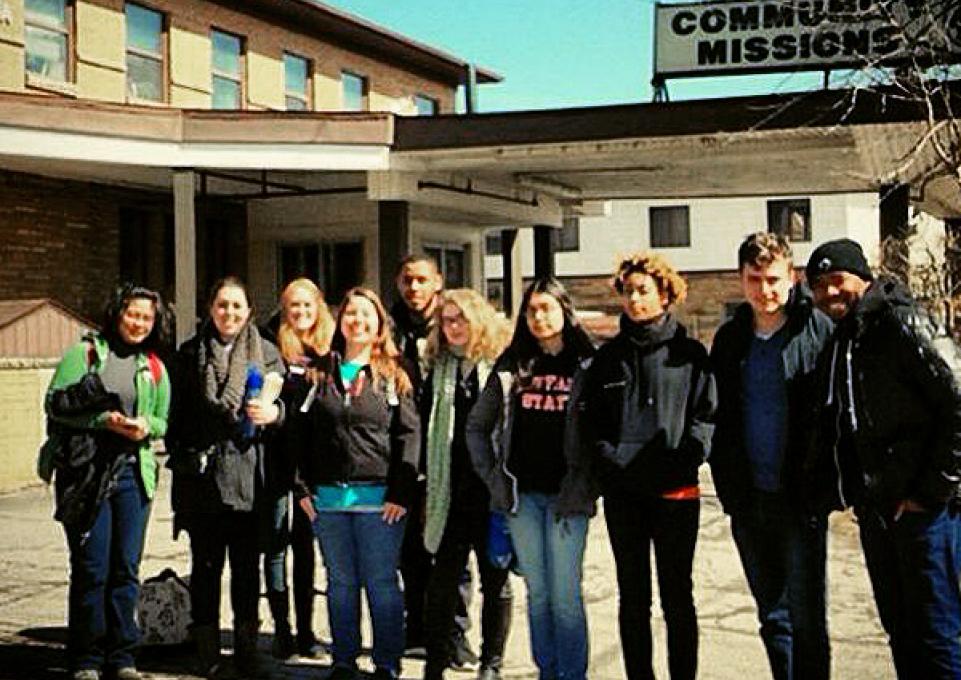
It’s one thing to read about the grim realities of poverty. It’s quite another to witness those realities up close and try to do something to ease them.
Eleven Buffalo State students chose the latter by participating in the Volunteer and Service-Learning Center’s (VSLC) Alternative Spring Break (ASB): Exploring Urban Poverty in Niagara Falls, New York. They spent March 23–28 volunteering in soup kitchens and food pantries and delivering food and other supplies to needy residents.
Now in its fifth year at Buffalo State, ASB provides a drug- and alcohol-free opportunity for students to learn practical skills while helping residents of impoverished communities.
According to the U.S. Census Bureau, approximately 25 percent of Niagara Falls residents live below the poverty level, compared with 15 percent of residents of New York State.
This is one of the reasons for choosing to work with social services organizations in the city, said Aurora Schunk, VSLC associate. Along with providing great community-service outreach, the experience served as an essential learning experience for students in majors ranging from fine art to psychology, said Scott Thompson, a junior urban planning major and the trip’s site leader.
“I was thrilled when Scott said that he wanted to teach and involve other students in understanding urban poverty specifically in the context of Niagara Falls,” said Schunk. “There are many parallels in the story of urban poverty between Buffalo and Niagara Falls. Our program provides a space for students to engage in service in Buffalo, but this is the first time an alternative break experience has occurred in Niagara Falls.”
Thompson, who participated in two previous service-learning trips, said the point is to have students experience social issues beyond anything they would find in a textbook.
“There were things we saw I personally wasn’t expecting and hadn’t thought about before.”
For instance when they served lunch to clients at the Community Missions, he realized the barriers that weather and transportation present to people living in poverty.
“If the weather is really bad, people can’t get here and they just don’t eat,” he said.
And when students took meals, toiletries, and toys to families staying in low-budget motels through the Magdalene Project, it was equally eye-opening.
“There were lots of little kids staying in not really livable conditions,” he said. “The families seemed hungry and glad to see us.”
At night, the Buffalo State students stayed at Mission House, which is operated by the United Methodist Church. They each paid $75 to cover all expenses for the week. The students also earned 40 community service hours.
“Another benefit is you get to meet people on campus you may not meet otherwise,” Thompson said. “All of participants said it was good experience and some are applying to be site leaders in the future.”
